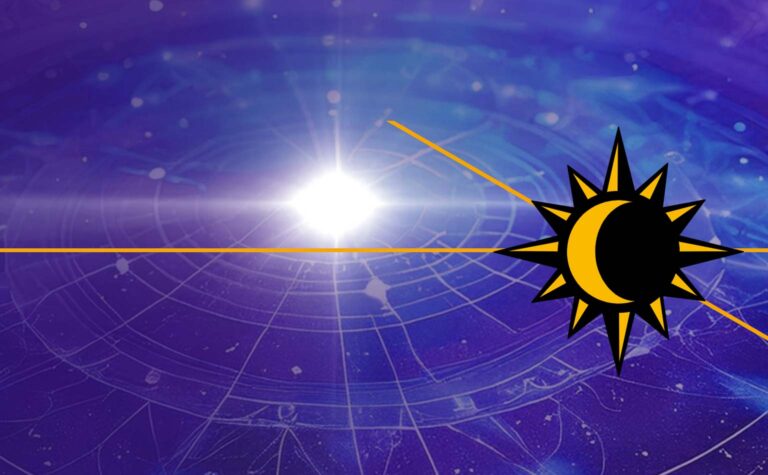I’ve been thinking a lot about loneliness recently. Christmas and New Year are a good time for that. It’s so easy to fall into some kind of envy that makes you feel that your life is less than everyone else’s and separates you even from yourself.
I imagine like many of you reading this, I have suffered from bouts of loneliness throughout my life. For me loneliness isn’t just one feeling. Sometimes it’s like a dark heaviness that creeps into my heart and stays there, brooding. Sometimes it can be so intense that it paralyses any sense of self. At other times the feeling of separation can be so unbearable it can make me wish I wasn’t here at all.
Overriding displacement activity
I usually embark on some kind of displacement activity to try and alleviate it. But in my experience, displacement activity does just that – displaces whatever you are feeling until the feeling comes back again. So I wanted to use this Christmas period to get to know what loneliness really means to me, especially as I grow older, and how I can use it to enhance my life rather than being undermined by it.
Having worked as a psychotherapist for many years, I have explored all sorts of psychological theories about the meaning of life, but the older I get the more I am drawn to Buddhist beliefs and practices to help my spiritual development, which is now central to my life.
So I turned off my mobile and holed up in self-imposed retreat for several days on my narrrowboat Mystic Moon, accompanied by The Dalai Lama’s book, The Art of Happiness and the teachings of Pema Chödrön, resident Buddhist teacher at Gampo Abbey Monastery in Nova Scotia, to take a good long look at loneliness square in the eye.
The shame of loneliness
Apart from sitting with loneliness and allowing it to be present in whatever form it took, these few days gave me the time to reflect on conversations I had with single friends during the build up to Christmas. ‘It’s awful being on your own at this time of year. It’s as if there’s something wrong with you, and you’re a failure,’ said one friend who has been divorced for many years. Then she added, smiling bravely, ‘But you’ve just got to get on with it.’ Another single friend was dreading spending Christmas with her very dysfunctional family, ‘It’s play-acting for the duration. But at least I get away from the flat for a bit.’ Yet another single friend had accepted an invitation to stay with a married friend, ‘It’s so kind of them to invite me and I am very grateful, but underneath all the smiles, I find it very difficult being the odd one out – the one on their own. It makes me wonder why this isn’t my life. What have I done wrong to end up on my own like this?’
‘My loneliness is really trigger-happy so it doesn’t take a lot to fall down the pit,’ admitted someone else. ‘It can be set off by seeing a couple walking arm in arm along a street, or visiting someone’s house that I wish I lived in, or going to a wedding, or being at a dinner party as the only single person, or … well, the list is endless. But most people never know how I feel. I’m too ashamed to say anything.’
But loneliness is not just the domain of those who are single. Many people who are in relationships also feel lonely. I know someone who has on the surface the perfect life: a long, stable marriage, a successful career, a great relationship with their emotionally well-adjusted teenager, and financial security. Yet this person experiences intense feelings of loneliness, and, along with that or because of it, depression.
I am sure too, that most of us, if not all of us, have experienced those moments when we are standing in the middle of a crowd, or at a party, or bringing up a family, or taking care of somebody and we are hit by a wave of loneliness.
It made me ask the question, if loneliness causes us so much unhappiness, what is the point of it?
Loneliness: part of the human condition
Loneliness is part of the human condition, states Pema Chödrön in her article, Six Kinds of Loneliness. And it has ever been thus. Buddha, born in 623 BC in southern Nepal taught that suffering and loneliness comes with the territory of being incarnate in a physical body. Ancient mythology also explores the theme of loneliness and isolation. For example, loneliness lies at the heart of Homer’s epic poem The Odyssey, composed near the end of the 8th century BC and regarded as a key work of western civilization. Odysseus may have escaped death, and succumbed to the charms of the Goddess Calypso, but he cannot escape loneliness as he yearns for home and his beloved wife Penelope.
I spent some time pondering on the fact that loneliness is part of the human condition. Of course I knew this in theory, but I hadn’t full grasped until now what this actually meant. Which is: there’s nothing wrong with me if I am feeling lonely. It is just as much part of me as experiencing happiness, fear, grief or joy, or accepting the inevitability of death. I found that liberating.
‘Usually we regard loneliness as an enemy,’ says Pema Chodron. ‘Heartache is not something we choose to invite in. It’s restless and pregnant and hot with the desire to escape and find something or someone to keep us company.’
She carries on to explain that it’s how we relate to loneliness that matters. This means facing it, and embracing it, and finding a spiritual practice (Buddhist meditation in her case) that will take the sting out of it. ‘When,’ she says, ‘we can rest in the middle, we begin to have a nonthreatening relationship with loneliness, a relaxing and cooling loneliness that completely turns our usual fearful patterns upside down.’
Turning loneliness into Golden Solitude
Reading her article made me realise how difficult it can be for many of us, in our consumer-driven society that does not hold spirituality in much regard, to embark on a spiritual practice, or to find a quiet, safe space to reflect on something as profound as loneliness.

Not so long ago Christian religion lay at the centre of our lives. Although this came with its own set of problems and challenges, many people sought comfort from the soul’s eternal struggle with loneliness through their relationship with God. There was a sense of this existential battle being part of a hallowed relationship that moved beyond the ordinary rigors of life, and became the motivation for many men and women to enter religious life or hermitages in search of inner peace through the sanctity of golden solitude.
However flawed and imperfect our relationship with God and the Church may have been, this has now been pushed aside by an increasingly secular society. Rather than turning inwards in search of spiritual solace, we are constantly encouraged, if not brainwashed, to believe that the only way out of loneliness is to fix it. Television advertising, for instance, bombards us with images of sparkling new sitting rooms or bedroom furniture that will fill us with ecstatic joy, or we can transform our malfunctioning relationship by heading off on an exotic holiday. Or we, too, can find the perfect mate by joining this or that dating site. We just have to hand over our credit card, and hey-presto: that hole in our life vanishes.
Now we have 24/7 social media in the mix. People may be communicating with each other countless times a day using various electronic gadgets, but they are not connecting. A recent survey published on-line reports that many people, and this is not just the younger generation, would rather send tweets or texts than actually pick up the phone to speak to each other. Or, heaven forbid, actually talk face to face.
Putting the sacred back into loneliness
The Dalai Lama expresses deep concern in The Art of Happiness about the impact that modern technology has on our lives and our ability to connect with each other. While he appreciates the positive aspects of technology, technology itself, he says, ‘cannot produce compassion. Connection means meeting someone heart to heart in compassion, acceptance and understanding. It is about intimacy.’
His teachings helped me to understand that loneliness forces us to take notice of our separation from connection and intimacy, not just from ourselves, and each other, but also from something greater. I am comfortable referring to this ‘something greater’ as God. Buddhists call it the Buddhahood. Others may call it The Light. Or Higher Wisdom. Or the Universal Force. It’s whatever works for us as individuals.
Nevertheless, Pema Chodron acknowledges that to change our relationship to whatever causes us suffering is challenging: ‘The process of becoming unstuck requires tremendous bravery, because basically we are completely changing our way of perceiving reality, like changing our DNA. We are undoing a pattern that is not just our pattern. It’s the human pattern.’
I would agree with this. It does take courage to confront what we don’t like about ourselves, or feelings that isolate us from the rest of the world. But we can overcome it by reaching out to someone we trust, or by connecting deeply within ourselves.
I resurfaced from my retreat feeling lighter and a lot more hopeful. Of course I will feel lonely again, because I now fully accept that loneliness is part of who I am. But I am also hopeful that when it happens I will no longer feel a victim to it. Rather I will be able to open my heart to it and say, ‘Hello.’ And, I am hopeful that I will remember it is loneliness that spurs me forward on my own personal and spiritual Odyssey to connect with the sanctity of golden solitude.
I want to leave you with this quote from the American author Janet Fitch, which for me is the best advice I have read about how to relate to loneliness:
‘Loneliness is the human condition. Cultivate it. The way it tunnels into you allows your soul room to grow. Never expect to outgrow loneliness. Never hope to find people who will understand you, someone to fill that space. An intelligent, sensitive person is the exception, the very great exception. If you expect to find people who will understand you, you will grow murderous with disappointment. The best you’ll ever do is to understand yourself, know what it is that you want, and not let the cattle stand in your way.’
Post Script
Coincidentally while I was on my retreat a very moving letter was read out on Woman’s Hour from a woman in her early 60s about her struggle with loneliness as a prelude to Jenny Murray’s interview with MPs Seema Kennedy and Rachel Reeves, who are now championing MP Jo Cox’s inspirational concept: A Commission into Loneliness.
Much, much needed work.

George Monbiot, social commentator and environmental and political activist, is also spearheading a project on loneliness using music as a way of helping people to reach out.







3 comments
Susie Collcutt
Thank you, Sue, for sharing your thoughts on loneliness. I experience this sort of disconnect from fellow human beings from time to time, but it is a sort of choice for me. It gives me freedom from what others might need from me, so that I can pay particular attention to the still, small voice inside myself. The world is sometimes too noisy and busy to allow me time for reflection, and yet, when I am alone, I can feel lonely. I consider it the price I pay for truly being my authentic self.
Alex Klaushofer
Hello Sue,
A very new year to you, as Philomena Cunk puts it.
What better way to start than by booking a place on the BoA death cafe in March, if there are spaces left. Let me know if there’s anything I need to do, and I’ll ink it into my diary.
Hope to see you on a walk sometime,
Best,
Alex
http://www.alexklaushofer.com http://www.thesecretlifeofgod.net @alexklaushofer
Sue
Hi Alex, just to let you know I am running at death cafe on the boat on Friday 20th Jan from 2.30 – 4.30. Let me know if you want to book a place.